New Reads This Spring From Duke Authors
Our spring season continues to shower us with smart, interesting books
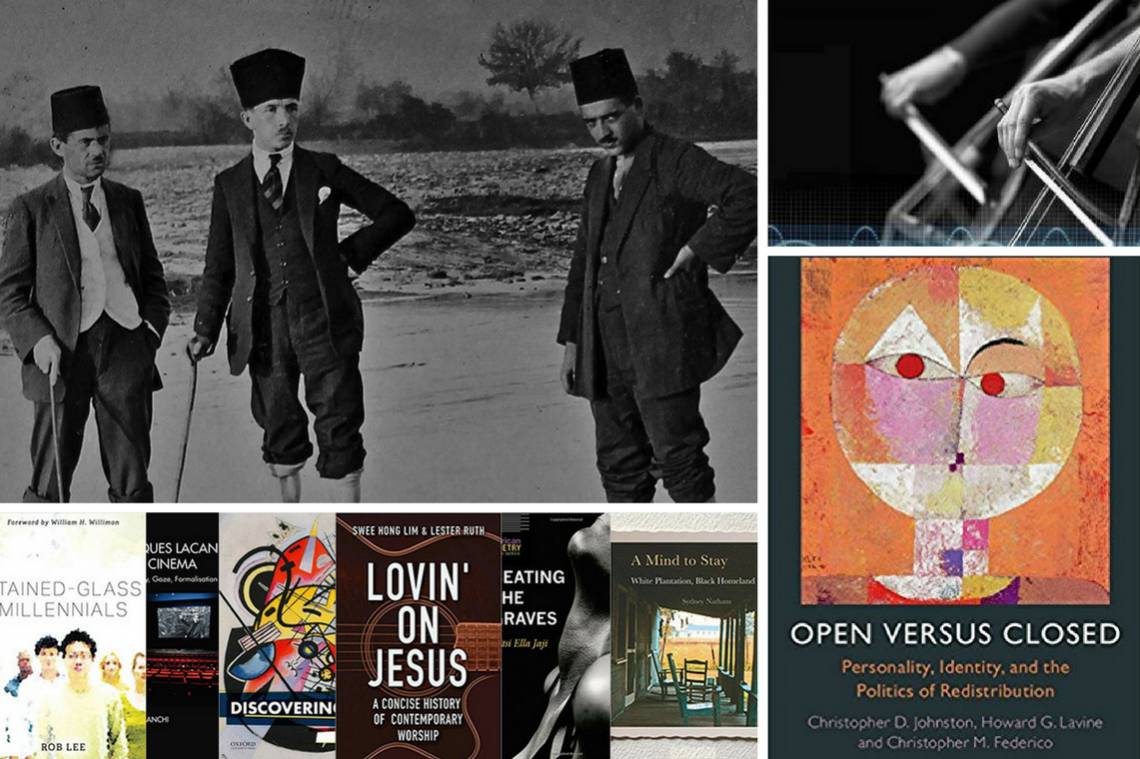
There are good reads this spring from Duke writers: From the rise of female peacekeepers to music as biology and poetic meditations on the meaning of living in diaspora, Duke faculty members and others have explored a wide array of topics in their latest books.
Many of the books, including new editions of previous titles, can be found on the "Duke Authors" display shelves near the circulation desk in Perkins Library. Some are available as e-books for quick download. Most can also be purchased through the Gothic Bookshop.
[Duke Today will provide similar updates in the future. If you are a member of the Duke faculty or staff who will be publishing a book of interest to a general audience, send us a message about it along with your publisher's brief description.]
Kyle Beardsley, co-author: “Equal Opportunity Peacekeeping: Women, Peace, and Security in Post-Conflict States” (Oxford University Press)
In the first empirical exploration of peacekeeping with an emphasis on the implications for gender equality, Beardsley and his co-author assess gender reforms in the UN Mission in Liberia. They analyze new cross-national data on female peacekeepers globally and sexual exploitation and abuse in peacekeeping missions, adding first-hand accounts from female peacekeepers. Beardsley is an associate professor and director of graduate studies in the Department of Political Science.
Pietro Bianchi: “Jacques Lacan and Cinema: Imaginary, Gaze, Formalisation” (Karnac)
In his first book, Romance Studies third-year graduate student Pietro Bianchi presents an overview of French psychoanalyst Jacques Lacan’s theorization of the visual, considered in relation to several thinkers of cinema (Eisenstein, Straub-Huillet, Deleuze, Rancière). In addition to writing this book, Bianchi also regularly publishes as a film critic for a variety of Italian publications. His Ph.D. project at Duke is on French and Italian cinema, especially on genre cinema of the 50s, 60s and 70s.
Joseph Blocher, co-author: “Free Speech Beyond Words: The Surprising Reach of the First Amendment” (NYU Press)
The Supreme Court has unanimously held that Jackson Pollock’s paintings, Arnold Schöenberg’s music and Lewis Carroll’s poem “Jabberwocky” are “unquestionably shielded” by the First Amendment. Drawing on existing legal doctrine, aesthetics and analytical philosophy, Duke law professor Joseph Blocher and two other law scholars show us how and why speech beyond words should be fundamental to our understanding of the First Amendment.
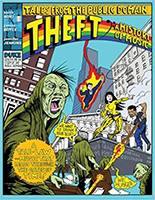 James Boyle and Jennifer Jenkins: “Theft: A History of Music” (CreateSpace paperback and CC-licensed download)
James Boyle and Jennifer Jenkins: “Theft: A History of Music” (CreateSpace paperback and CC-licensed download)
Jenkins and Boyle, the Duke law professors who produce the annual Public Domain Day roundups, have written a graphic novel laying out a 2,000-year-long history of musical borrowing from Plato to rap. The comic is available as a paperback, and for free download under a Creative Commons license. Would jazz, soul or rock and roll be legal if they were reinvented today? The authors, staunch defenders of fair use and remixing, are not sure. You can read Boing Boing’s review here. Read more here.
Linda Burton, co-editor: “Boys and Men in African American Families” (Springer, National Symposium on Family Issues)
Sociology professor Linda Burton, dean of social sciences and co-director of Duke’s International Comparative Studies Program, takes a life course approach in highlighting empirical evidence on the family experiences of African American males in socioeconomic and political contexts. Chapters identify challenges facing black men and boys in the United States, as well as family and community sources of support and resilience.
Emily Daly, Joyce Chapman and Thomas Crichlow, contributors: “Students Lead the Library: The Importance of Student Contributions to the Academic Library” (American Library Association)
Academic librarians are driven by the belief that student scholars are at the heart of the library. Daly, Chapman and Crichlow -- Duke Library staff members in the Assessment & User Experience Department, are the co-authors of Chapter 15 -- “Just Ask Them! Designing Services and Spaces on the Foundation of Student Feedback.” The book will be useful to libraries seeking to improve their services to students, reach out to new student populations, give students experiential learning opportunities, and even mitigate staffing shortages.
Gregson Davis, translator: “Journal of a Homecoming/Cahier d’un Retour au Pays Natal” (Duke University Press)
Originally published in 1939, Martinican author and statesman Aimé Césaire’s surrealist masterpiece “Cahier d’un Retour au Pays Natal” is a landmark of modern French poetry and a founding text of the Négritude movement. This bilingual edition features a new authoritative translation by Davis.
Darla Deardorff, co-editor: “Intercultural Competence in Higher Education: International Approaches, Assessment and Application” (Routledge, May 14, 2017)
Intercultural competence has become an essential element in international as well as domestic education. This book provides case studies and contributions from more than 19 countries concerning topics such as student internships and the role of higher education in developing intercultural competence for peacebuilding in the aftermath of violent conflict. Darla Deardorff is executive director of the Association of International Education Administrators, an international leadership organization based at Duke.
Dr. J. Mauricio Del Rio, contributor: “Anesthesia and Perioperative Care for Organ Transplantation” (Springer)
Del Rio, an assistant professor of anesthesiology, is co-author of the ninth chapter in this comprehensive textbook written for anesthesiologists, critical care physicians, transplantation surgeons, nurse anesthetists, ICU nurses and trainees.
Tobias Egner, editor: “The Wiley Handbook of Cognitive Control” (Wiley-Blackwell)
Egner, an associate professor in the Department of Psychology & Neuroscience, reviews research investigating the brain mechanisms underlying cognitive control -- human beings’ extraordinary ability to use internal goals to guide thought and behavior. The book explores the ways that cognitive control research – which has grown tremendously over the last 25 years -- can inform and enhance our understanding of brain development and neurological and psychiatric conditions.
Matthew Floding, editor: “Engage: A Theological Field Education Toolkit” (Rowman & Littlefield Publishers)
Theological field education, in which a ministry student steps out of the classroom and begins practicing with the supervision of a mentor, is a critical part of accredited ministry programs. Matthew Floding, director of ministerial formation at Duke Divinity School, has written “Engage” to help prepare students for the challenging work of integrating theory into real-world practice. The book provides coaching from recognized experts in the arts of ministry. Other chapters address themes such as race, gender and ministry across faith traditions (or no faith).
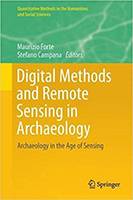 Maurizio Forte, co-editor: “Digital Methods and Remote Sensing in Archaeology: Archaeology in the Age of Sensing” (Springer)
Maurizio Forte, co-editor: “Digital Methods and Remote Sensing in Archaeology: Archaeology in the Age of Sensing” (Springer)
In a book that makes a major contribution to understanding the new scope of remote sensing as a non-destructive approach to viewing buried antiquities, Maurizio Forte focuses on the many disciplines surrounding archaeology and related cultural studies that are making use of the technological advances. Forte is a professor of classical studies and chair of Art, Art History, and Visual Studies.
Dr. Jeff Gadsden, co-author: “Anesthesiology Self-Assessment and Board Review: Basic Exam” (McGraw-Hill Education)
Gadsden, an associate professor of anesthesiology, draws on the American Board of Anesthesiology BASIC Exam outline to provide students with more than 800 high-yield Q&As, along with numerous clinically relevant drawings and photos and references to essential texts to facilitate further study.
Dr. Geoffrey Ginsburg, co-editor: “Genomic and Precision Medicine: Foundations, Translation and Implementation” Third edition. (Academic Press)
The book pinpoints the challenges, barriers and solutions that have been brought forward to enable translation of genome-based technologies into health care. Ginsburg, a professor of medicine, has collaborated with Huntington F. Willard, founding director of the Duke Institute for Genome Sciences and Policy and now at the University of Chicago.
Erdag Göknar: “Nomadologies” (Turtle Point Press)
Göknar, the director of the Duke Middle East Studies Center and known for his award-winning translation of Nobel laureate Orhan Pamuk's historical novel “My Name Is Red,” focuses on Turkish-American themes of diaspora and his own family history in this collection of poetry. Taking its organizing principle from the grammar of nomadic life, “Nomadologies” reveals that mobility is the most efficient strategy for sustaining contradictory existences.
Mitu Gulati, contributor: “The Oxford Handbook of Law and Economics, Volume 3: Public Law and Legal Institutions” (Oxford University Press)
Gulati, a Duke law professor with a research interest in the historic evolution of concepts of sovereign immunity, contributes an essay to this look at law and economics.
Laurence Helfer and Jerome Reichman, co-authors: “The World Blind Union Guide to the Marrakesh Treaty: Facilitating Access to Books for Print-Disabled Individuals” (Oxford University Press)
The Duke law professors and copyright scholars are two of the four authors of this guide to the Marrakesh Treaty, a watershed agreement that uses the legal and policy tools of copyright to advance human rights.
Laurence Helfer, co-author: “Transplanting International Courts: The Law and Politics of the Andean Tribunal of Justice” (International Courts and Tribunals Series) (Oxford University Press, May 16, 2017)
Helfer, co-director of Duke’s Center for International and Comparative Law, investigates the most active and successful transplant of the European Court of Justice. Given that the Andean community has weathered member state withdrawals and threats of exit, major economic and political crises, and the retrenchment of core policies such as the common external tariff, the Andean experience offers timely and important lessons for European international courts.
Dr. Aatif Husain and Dr. Saurabh Sinha, co-editors: “Continuous EEG Monitoring: Principles and Practice” (Springer)
The textbook, edited by two Duke neurology professors, features several chapters by members of the Duke Neurology Department, including Sinha, Keith Dombrowski, Drs. Christa Swisher, Mariam Wasim, Michael Pietak and neurodiagnostics technician Crystal Keller. Continuous EEG monitoring offers the only reliable means of detecting seizures that are not clinically obvious in critically ill patients.
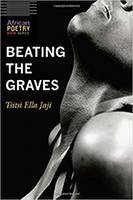 Tsitsi Jaji: “Beating the Graves” (University of Nebraska Press)
Tsitsi Jaji: “Beating the Graves” (University of Nebraska Press)
In her debut collection of poetry, Jaji meditates on the meaning of living in diaspora, an experience increasingly common among contemporary Zimbabweans. Jaji is an associate professor of English and African & African American Studies and also the author of “Africa in Stereo: Modernism, Music, and Pan-African Solidarity.”
Christopher Johnston, co-author: “Open versus Closed: Personality, Identity, and the Politics of Redistribution” (Cambridge University Press)
Johnston, an assistant professor of political science, shares research on how deep-seated personality traits shape citizens' attitudes toward economic redistribution, and what it means for American democracy. The authors find that for politically active citizens these attitudes are not driven by self-interest, but by a desire to express the traits and cultural commitments that define their identities.
Rob Lee: “Stained-Glass Millennials” (Smyth & Helwys)
Lee, an ordained Methodist minister in the United Church of Christ and Cooperative Baptist Fellowship and student at Duke Divinity School, argues there is more common ground between the church and millennials than surveys suggest. Lee, who grew up in Statesville, recently talked about his book on WUNC’s “The State of Things.”
Evan MacLean and Charles L. Nunn , contributors: “APA Handbook of Comparative Psychology” Two volumes. (American Psychological Association)
MacLean, adjunct assistant professor of evolutionary anthropology, and Nunn, a professor of evolutionary anthropology, are the authors of a chapter, “Phylogenetic Approaches for Research in Comparative Cognition.”
Edmund Malesky, co-author: “China's Governance Puzzle: Enabling Transparency and Participation in a Single-Party State” (Cambridge University Press)
In an extensive collaborative study, political science professor Edmund Malesky explores the origins and scope of governance reforms across China. The impact of the reforms could dictate China's political trajectory for years to come. Malesky is one of three co-authors.
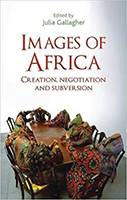 V. Y. Mudimbe, contributor: “Images of Africa: Creation, Negotiation and Subversion” Reprint edition. (Manchester University Press)
V. Y. Mudimbe, contributor: “Images of Africa: Creation, Negotiation and Subversion” Reprint edition. (Manchester University Press)
Mudimbe, a professor of literature, has written the forward to this book that challenges the widely held idea that Africans are powerless in the creation of self-image. The book is edited by Julia Gallagher, a lecturer in international relations at Royal Holloway, University of London.
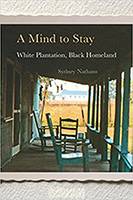 Sydney Nathans: “A Mind to Stay: White Plantation, Black Homeland” (Harvard University Press)
Sydney Nathans: “A Mind to Stay: White Plantation, Black Homeland” (Harvard University Press)
History professor emeritus Sydney Nathans offers a counterpoint to the history of the Great Migration, focusing on a community of black Americans who remained in the South, eventually becoming the owners of the land their enslaved ancestors worked. The book was recently reviewed in The Charlotte Observer. An excerpt from Nathans’ prologue, “Unexpected,” is here.
Dale Purves: “Music as Biology: The Tones We Like and Why” (Harvard University Press)
The universality of musical tones has long fascinated philosophers, scientists, musicians and ordinary listeners. Purves, an emeritus professor in neurobiology, draws on evidence that the intervals defining Western and other scales are those with the greatest collective similarity to the human voice; that major and minor scales are heard as happy or sad because they mimic the subdued and excited speech of these emotional states; and that the character of a culture’s speech influences the tonal palette of its traditional music.
Martha Reeves: “Women in Business: Theory and Cases” Second edition. (Routledge)
Reeves, a visiting professor of sociology, reviews the issues important to women in the workplace, including gender discrimination and the legal framework for equity at work.
Miguel Rojas-Sotelo: “Irrupciones, Compresiones, Contravenciones: Arte Contemporáneo y Política Cultural en Colombia” (“Irruption, Compression, Contravention: Contemporary Art and Cultural Policy in Colombia”) (Uniandes Press, forthcoming)
Rojas-Sotelo, an art historian and program coordinator in the Duke Center for Latin American and Caribbean Studies, will launch his new book at the Bogotá International Book Fair on April 28. The book examines how contemporary art, literature and mass media have shaped the writing of Colombian history under the neoliberal model, the new national constitution and its cultural policy.
Philip Rupprecht, co-editor: “Tonality Since 1950” (Steiner)
Rupprecht, professor and chair of the Department of Music, helps document the debate surrounding one of the most basic technical and artistic resources of music in the later 20th century. Essays by 15 leading researchers cover a repertoire of concert and pop/rock music composed in Europe and America over the past half-century.
Lester Ruth, co-author: “Worshiping with the Anaheim Vineyard: The Emergence of Contemporary Worship” The Church at Worship series (Eerdmans)
Ruth, a research professor of Christian worship at Duke Divinity School, tells the story of the Anaheim Vineyard Christian Fellowship and its influence on the worship renewal movement that involved thousands of evangelical churches during the 1970s and 1980s.
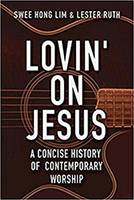 Lester Ruth, co-author: “Lovin’ on Jesus: A Concise History of Contemporary Worship” (Abingdon Press, April 20)
Lester Ruth, co-author: “Lovin’ on Jesus: A Concise History of Contemporary Worship” (Abingdon Press, April 20)
This compact -- but thorough -- history of changes in North American Protestant worship in the second half of the 20th century reveals a complex lineage that led to the worship forms now common in many Christian worship services across the globe.
Richard Salsman: “The Political Economy of Public Debt: Three Centuries of Theory and Evidence” New Thinking in Political Economy series (Edward Elgar Publishing)
In this history of thought on public debt, Salsman, a visiting professor of political science, rehabilitates a realist perspective into the contemporary debate. The book simultaneously explicates and critiques the most prominent theories concerning why states borrow in the first place, whether or not they borrow productively, the incidence of their debts, why they sometimes borrow too much and why they often default, whether explicitly or implicitly.
Dr. Don Sanders, contributor: “Oxford Textbook of Clinical Neurophysiology” (Oxford University Press)
Sanders, a professor of neurology, is author of the chapter, “Clinical Aspects of Neuromuscular Junction Disorders.” Much of diagnostic neurophysiology is essentially pattern recognition, and this is illustrated in the book through the use of audio and video examples.
Kersey Sturdivant, co-author: “Getting Into Graduate School in the Sciences: A Step-By-Step Guide for Students” (Cambridge University Press)
Sturdivant, a marine scientist who specializes in coastal disturbance, is an adjunct assistant professor at the Duke Marine Lab at the Nicholas School of the Environment. This informative and humorous guide for life and earth science students offers comprehensive advice to help them prepare and increase their chances of success.
Steven Schwarcz, contributor: “The Oxford Handbook of Law and Economics, Volume 2: Private and Commercial Law” (Oxford University Press, May 16)
Schwarcz, a professor of law and business, is the founding director of Duke’s Global Financial Markets Center. He is the author of chapter 17, “Banking and Financial Regulation.” Most recently, he was the co-editor of “Oxford Handbook of Well-Being and Public Policy,” published in 2016.
Edward Tiryakian, contributor: “Journeys in Sociology: From First Encounters to Fulfilling Retirements” (Temple University Press, May 1)
A professor emeritus of sociology, Tiryakian is one of 20 contributors to this anthology published in collaboration with the American Sociological Association Opportunities in Retirement Network. The contributors look at both the influence of their lives on the discipline and the discipline on these sociologists’ lives.
Larry Todd: “Discovering Music” (Oxford University Press)
The music professor’s book teaches students how and why to listen to music, emphasizing the relevance of course content to students' lives and highlighting connections between music, history and other art forms.
Mark Wiesner, co-editor: “Environmental Nanotechnology: Applications and Impacts of Nanomaterials” Second edition. (McGraw-Hill Education)
This study of the impact of nanomaterials on the environment has been updated to reflect the latest developments. Mark Wiesner, a professor of civil and environmental engineering, has been a pioneer in the applications of nanomaterials to membrane science and water treatment and in examining possible risks posed by these materials to human health and the environment. He serves as director of the National Science Foundation/USEPA-funded Center for the Environment Implications of NanoTechnology (CEINT).